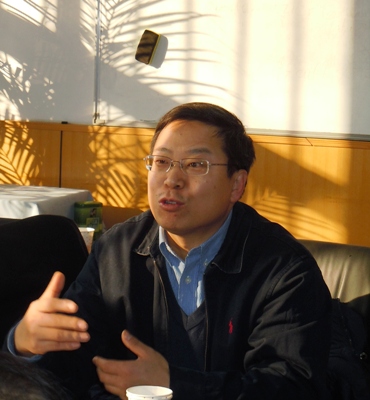HAN ZHAOYING: Obama reaffirms commitment not help with allies’dilemma

Han Zhaoying is from the Zhou Enlai School of Government at Nankai University.
During April 23-29, U.S. President Barack Obama’ took an Asian tour to Japan, Korea, Malaysia and the Philippines, aiming to push forward discussion of the Trans-Pacific Partnership and deepen ties with the U.S.’s Asian allies. Amid the increasingly complex context of the Asia-Pacific region, Obama’s trip was closely watched by the international community.
During his high-profile stay in Asia, Obama explicitly stated that the Article 5 of the U.S.-Japan Treaty of Mutual Cooperation and Security covers the disputed Diaoyu Island, which are administered by Japan. Moreover, Obama expressed support for Japan's move toward lifting its self-imposed ban on the use of collective self-defense. This is the first time a U.S. President has explicitly taken a side on these issues. In South Korea, Obama asserted that he would, without hesitation, defend the U.S. and its allies’ lifestyle through military force. He also deplored Japan for the issue of “comfort women” during World War II. On April 26, the U.S. and the Philippines signed a new Mutual Defense Treaty which allows more American troops to be stationed in Southeast Asia. Struck by the economic recession, the U.S. lapsed into lassitude and slump and was forced to reduce its military and diplomatic expenditures, rechanneling its budget toward domestic affairs. With its contracting military expenditures, the U.S.’s Asian allies have begun questioning the validity of America’s security promise. Obama’s priority in this trip, therefore, was to reaffirm its promise and dispel the doubts of its allies.
‘Promise’ may be counterproductive
The U.S.’s promise conceals the innate contradiction between its political ambitions and its military strategy. During his visit in Japan and Philippines, Obama “considerately” responded to the question that the two countries were most concerned about: whether America will help to safeguard the Phillipines’ “territorial sovereignty”? Japan and the Philippines’ agenda could not be more clear: to take the upper hand in their territorial disputes with China with the support from U.S. However, in this way, it is clear that U.S. will be dragged into the complex territorial disputes of Asia, which will also draw protest and trigger a reaction from China. This would ultimately be to the detriment of America’s strategic interests. Therefore, while reassuring its determination to protect the “territorial sovereignty” of its Asian allies, the U.S. did not take sides on territory and sovereignty issues between Japan, the Philippines and China. This self-contradictory stance reveals the conflict between America’s military and political interests. On one hand, the U.S. hopes to convince its Asian allies that it will honor its strategic commitments; on the other hand, it is reluctant to cause friction with China.
The U.S.’s attempts to have its cake and eat it will no doubt send the wrong messages to its Asian allies, who presumably rely on the U.S. as their talisman. This will exacerbate existing tensions. However, if and when its allies’ hard-line policies trigger a clash, the U.S. will face severe challenges in honoring its security commitments—something it obviously hopes not to have to do. Its real intention is to reassure partners who are skeptical of its commitment to its stated promises, in so doing inducing them to conform to the U.S.’s Asia-Pacific strategy. This will just add to the U.S.’s troubles, running counter to its strategic interests in the region.
Clash between Japan and S. Korean
Both allies of the U.S., Japan and South Korea clash on a number of historical and territorial issues that cannot easily be shoved under the rug. The grandson of former Japanese prime minister Nobusuke Kishi, Shinzō Abe is an extreme conservative who has vigorously strengthened Japan’s military force since taking office. His blatant denial of Japan’s militant past has provoked strong condemnation from China, South Korean and other Asian countries. Japan-South Korea relations have plunged into tension, and were further strained by Abe’s visit to the Yasukuni Shrine. Aware that Japan’s strategic value will diminish drastically if it isolates itself in Asia, the U.S. has pushed Japan to enhance relations with its Asian neighbors. Quelling tensions between its Asian allies is instrumental for securing their support for its ambitions in the region. However, Obama’s words and deeds proved less effective than the U.S. president hoped in reconciling his two allies. The U.S. now has to face a deteriorating Asian alliance system defined by constant internal conflicts.
Self-interest, the real intention
The cohesion of the Asian alliance system has been in decline since the end of the Cold War, prompting the U.S. to actively reassert its security commitments to its Asian allies. However, this maneuver is simply out of self-interest. The U.S. has a history of abandoning its allies. Its repeated desertion of Pakistan when it suited its agenda is an obvious recent case in point. “When the U.S. most needs Pakistan, it seeks an alliance; when Pakistan most needs America, it abandons us,” a Pakistani scholar quipped, hitting the nail on the head. In a forthcoming book, the noted American security scholar Barry Posen argues that the U.S. should make “restraint” the basis of its big-power policy. In addition, not only should America itself implement a restrained foreign policy, it should also encourage its Asian allies to follow suit. The strategy Posen articulates is in line with both the U.S. and its Asian allies’ interest, and conducive to maintaining peace and stability in the Asia-Pacific region.
Han Zhaoying is from Zhou Enlai School of Government at Nankai University.
The Chinese version appeared in Chinese Social Sciences Today, No. 595, May 14, 2014
Translated by Bai Le
Revised by Charles Horne
Chinese Link:
http://www.csstoday.net/xueshuzixun/guoneixinwen/89533.html
